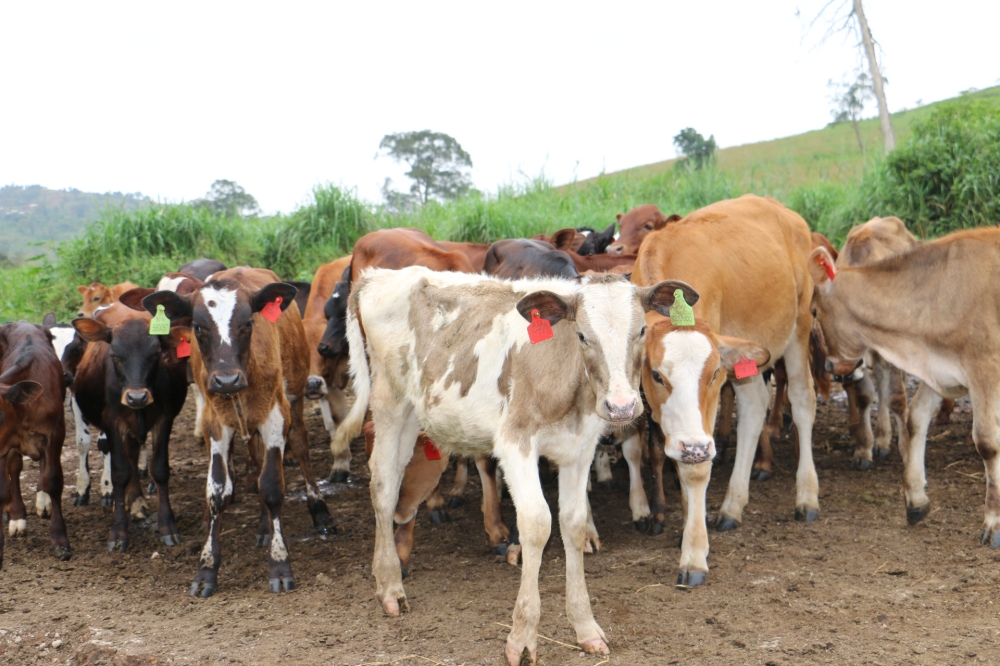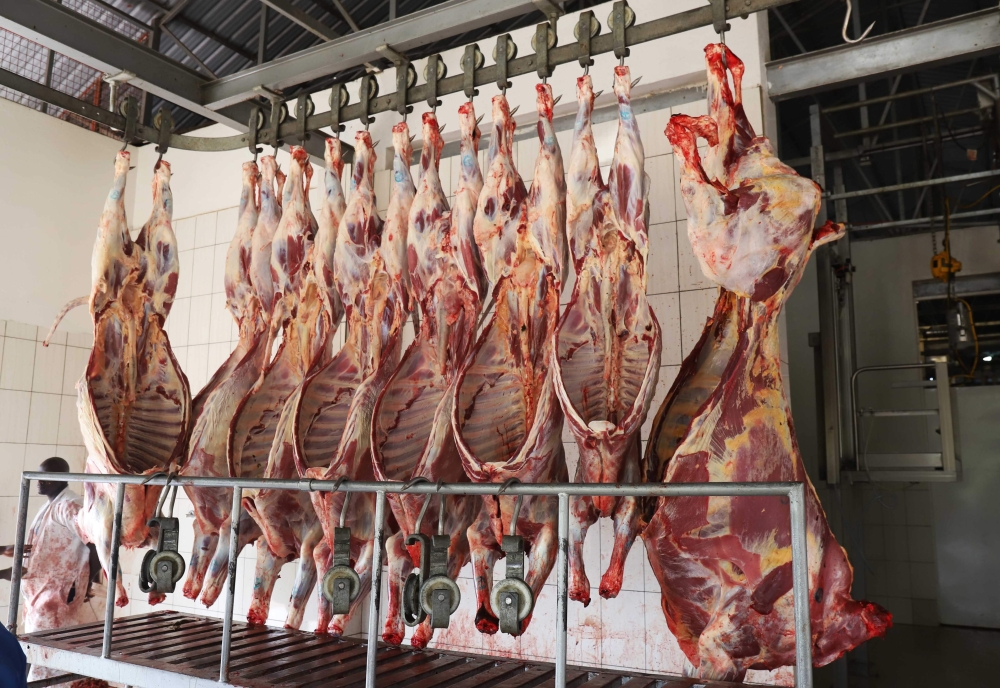

Rwanda Council of Veterinary Doctors ( RCVD) has said that the creation of companies at district level, saving and loan schemes will enable its members to deliver as they take over key veterinary services which government staff were providing.
ALSO READ: Veterinary Council Seeks More Professionals to Boost Livestock Enterprises
The Ministry of Agriculture and Animal Resources (MINAGRI) , on July 25, announced that key veterinary services will now be provided by private operators under the ‘Veterinary Sanitary Mandate’ Scheme, with government oversight.
This initiative aims to bring veterinary services closer to farmers, establishing a strong link between private veterinarians and the state.
ALSO READ: Government to Privatize Veterinary Services
The mandate places veterinarians at the service of the state and the public for general interest missions, such as early detection and control of animal diseases.


The decision was taken given that farmers were relying heavily on sector-level animal resources officers yet these officers are often too few and too far from farmers to provide effective services.
ALSO READ: Limited Access to Vet Services Hurts Poultry, Pig Farmers
In addition, these animal resources officers at sector level lack specialised veterinary skills, "as they are not necessarily trained veterinarians".
This was leading farmers to mistakenly assume that these officers can handle serious animal illnesses.
Under the scheme, private vet practitioners will provide various services, including animal care, housing, feeding, disease treatment, artificial insemination, and animal product inspection.
"Our members are ready to take over these services. They are creating companies which will sign contracts with districts to be able to provide the services.
In addition we have created a saving and loan scheme which will enable them to afford standard equipment and tool kits as a way of improving service delivery to farmers," the Executive Secretary of the council, Dr.Alphonse Nshimiyimana, told The New Times.
ALSO READ: Government Harmonizes Fees for Veterinary Services
The veterinarians are allowed to get loans from the scheme to develop themselves or buy needed veterinary tool kits.
He said the the council members can get loans from the saving scheme at only 7 per cent interest rate as
"We are getting partners and we hope for more funding apart from members&039; savings'" he said.
Each veterinarian has to contribute Rwf100,000 share capital to the saving scheme and then after each veterinarian has to contribute Rwf5,000 as minimum saving every month.
In 2023, Rwanda had about 5,000 veterinary practitioners registered with the Council of Veterinarians, but the country needs 13,539 to take care of the livestock in the country.
The council has also urged all veterinary doctors and technicians to acquire membership and licenses from the council as they take over key government veterinary services.
Nshimiyimana explained that taking over the services is timely given that their study showed 88 per cent of the council members work in private institutions or work privately while only 12 per cent work in public institutions.
Districts will sign contracts with the companies owned by the members , employing them based on the number of animals in each area.
The companies must also inform the vet council to get recommendation letters as they compete for providing the vet services as mandated by the government.
Farmers will pay for these services as usual, following prices regulated by the 2017 ministerial order.
Animal resources officers at the district and sector levels will continue coordinating and monitoring the operations of private vet companies.
In the event of an outbreak, districts may contract these companies, using earmarked funds to support vet activities, primarily for mass vaccinations. Development partners will also support the scheme.
How to get license
The veterinary council is a regulatory body mandated to regulate the veterinary profession.
"Only registered members of the council with valid licenses should join the vet companies which will take over the key services," Nshimiyimana added.
The council's general mission is to ensure that its members (veterinary professionals and paraprofessionals) provide quality and reliable services which include lucrative and preventive veterinary medicine, animal reproductive, veterinary pharmacy practice and use of inputs and livestock equipment, hygiene and quality of animal products, wild animal medicine among others.
Requirements for registration and membership include a letter addressed to the council's chairperson, notified degree and diploma, Rwf30,000 copy of ID and a filled application form.
To apply for the license, it requires license application letter addressed to the Chairperson of the council, copy of previous license for those already in practice, Rwf60,000 annual licensing fee for veterinary doctors and Rwf40,000 for technicians with A2 and A1 diploma holders, certificate of registration on country of origin for foreigners among others.
Fresh graduates pay only Rwf15,000 to get a provisional license as they pursue their professional internship.


